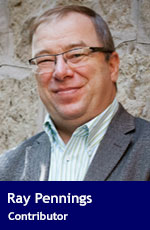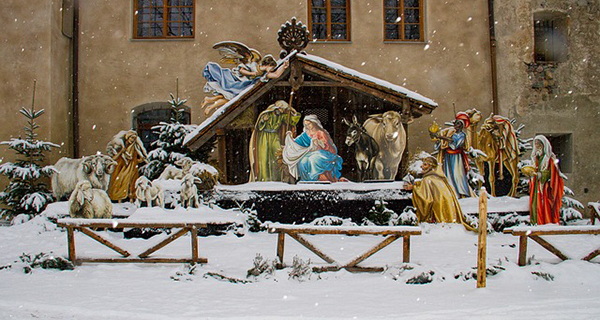 Christmas often brings out the best in Canadians. We dig into our pockets for charity a little more. We volunteer more. And we make more time for friends and family than at other times of the year.
Christmas often brings out the best in Canadians. We dig into our pockets for charity a little more. We volunteer more. And we make more time for friends and family than at other times of the year.
But the holiday sometimes brings out our weirder side, too – especially when it comes to Canadian hang-ups about religion.
In Victoria, we’ve seen city councillors railing against the municipality’s display of seasonal decorations, arguing that it’s inappropriate to display anything religious.
In Kitchener, Ont., city staff cut off the microphone when a local pastor tried to read the Christmas story during the opening night of the town’s Christkindl Market.
And there’s the perennial angst about whether it’s appropriate to say, “Merry Christmas.”
The central theme in all these cases is discomfort and disquiet about the place of religion in our common and public life.
The coming holidays are a great time to take a deep breath about all this. In fact, annual gatherings around the turkey table over the Christmas holidays might just be the best time to rethink the way we approach the whole religion and holidays question.
In some ways, our hang-ups about religion aren’t surprising. Recent polling that think-tank Cardus did with the Angus Reid Institute suggests Canadians have a general aversion to talking religion, turkey drumstick in hand or not.
When asked whether it was okay to try to convince someone to change their religious beliefs (or lack thereof), two-thirds of Canadians in general said the very idea was off-limits. That jumps to 75 per cent among non-religious Canadians, but falls to just 37 per cent among those who actively follow a religious faith.
What about light-hearted joking?
A full 72 per cent of Canadians say it’s never acceptable to make fun of someone’s religious beliefs (while 74 per cent say the same for teasing someone’s lack of beliefs). If you ask only the non-religious, the percentages remain roughly the same at above 70 per cent. Among those practising a religion, however, 62 per cent say it’s off-limits to joke about beliefs with a slightly higher percentage saying the same for lack of beliefs.
In short, the more religious you are, the more prepared you are to discuss and debate religion, and the more relaxed you are about humorous digs related to it. Chances are if you’re among those who’d scrap Christmas lights on city property in Victoria or cut off the mic of a pastor invited to a Christmas market in Kitchener, you’re among the group that doesn’t want to talk – or even joke – about religious beliefs.
Some of that attitude might simply be philosophical. But some of it is probably because those who are non-religious often lack the literacy and vocabulary to talk about matters of faith. And that makes them more likely to avoid the subject altogether.
The same survey found that while a majority of Canadians in general agrees that kids in school and government decision-makers should all learn the basics of the world’s major religions, the non-religious were the least likely to agree. They had little objection to religious illiteracy.
But at a time of heightened social divisions and social isolation, not to mention divisive politics, religious illiteracy is costly.
Immigrants moving into our neighbourhoods are more likely than not to be religious, aside from often being young, educated and liberal. Improved religious literacy allows us to be better neighbours to them. And for those who work among refugees or provide care to new arrivals, religious literacy allows them to do their jobs better. And do we really want our leaders to be ignorant of the world’s belief systems?
Debates about city decorations, Bible readings at Christmas markets or holiday greetings imply a misplaced discomfort about religion. It’s time to get over those hang-ups.
So maybe we can take time over the holidays to brush up on our own religious literacy. If we’re not so uptight about faith and belief, perhaps we can have more civil and neighbourly conversations about the subject – and maybe even smile about it.
Ray Pennings is executive vice-president of the think-tank Cardus.
The views, opinions and positions expressed by columnists and contributors are the author’s alone. They do not inherently or expressly reflect the views, opinions and/or positions of our publication.


